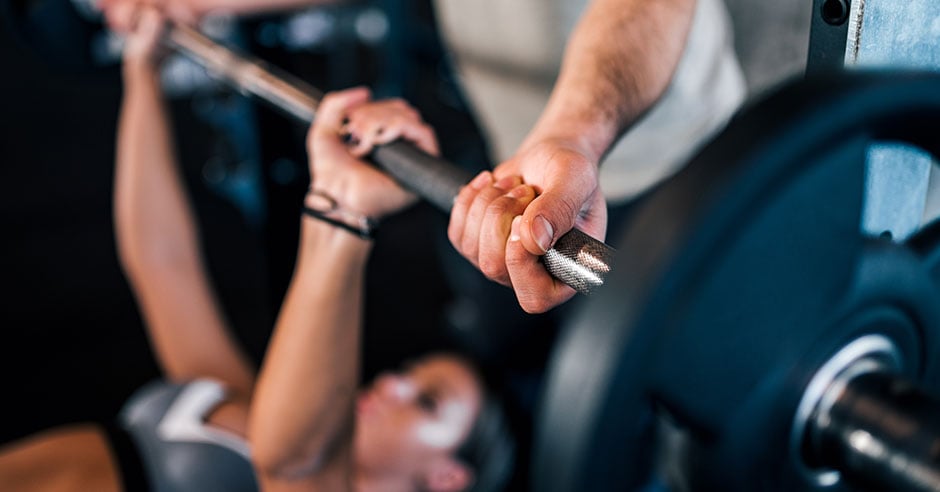Sports Science: Identifying Your Motives and Goal-Setting Tendencies

This month’s edition of Sports Psychology expands upon the Plan Phase of the Learn, Plan, Perform Model, a psychological framework in which athletes can create a clear vision of success and identify areas for improvement along their journey toward peak performance. It is also the first article in a three-part series focused on providing the educational knowledge, training tools, and actionable steps that help performers create goals that will lead them toward personal excellence.
Athletic Goals: Focusing Externally or Internally?
Although there is a mountain of goal-setting information on blogs and other resources on the internet, there are very few which clearly outline all the most successful strategies to make sure your goals set you up for performance improvements and ultimate success. Developing knowledge about the foundation of goal-setting helps you plan for more actionable and relevant performance improvement. Last month’s Bridge Athletic sport psychology article focused on identifying core values. This is a great first step to take on your path to achieving your consistent best. Aligning those values with your goals needs to be addressed, but first, it is important to understand how to set yourself up to measure success.
Take 5 minutes to think back to your last great successful performance. Since success is relative and defined by the person experiencing it, the last great successful performance you remember can be of any magnitude but hopefully from your sport or performance area. Now that you have the memory in mind, think about how you chose the goals you wanted to achieve. Were those goals based on winning and comparisons with others? Were they based on your own performance improvement without influence from outside factors? Or, were they built from a combination of both?
With that successful memory in mind, let’s take some time to understand how you can use that knowledge to learn from it. As you start to plan to find similar and even further success, think about choosing to focus goals on controlling the controllables. Usually, factors that bring the most anxiety and nerves before competition relate to results or uncertainties of whether or not you will achieve the outcome.
Building the Right Focused Effort
Which types of goal-setting tendencies help performers sustain effort through large setbacks during performance?
There are two main goal orientations from which people tend to measure success and find motivation. These are mastery (task) orientation and outcome (ego) orientation. When performers set goals with a mastery focus, they tend to view situations as a reflection of their own personal efforts. They also tend to relate success and failure to their own efforts. Some of the characteristics of mastery oriented performers include: persistence, striving to improve skills, belief that success comes from their own effort, and higher confidence in controllable factors of performance.
When performers set goals with an outcome focus, they tend to view success as a comparison with others. Their perspective is based on what other people are doing and how much others improve and perform compared to them. They also tend to relate their overall ability to their wins or losses in competition. Some of the characteristics of outcome oriented performers include: lack of persistence and a belief that success comes from external factors and natural talent.
There are important aspects of both orientations. The major difference between the two revolves around measuring success or failure in comparison to others and external factors outside of one’s control. Athletes find less anxiety and performance debilitating influences with a mastery focus in goal-setting. That doesn’t mean setting goals to win the championship or be the best at something aren’t worth your attention. Those goals do have some motivating power and can help you sustain effort over long periods of time as long as you also set goals that are task-mastery focused. In fact, you should probably set your goals with the 80/20 rule in mind. 80% of your success will come from accomplishing goals which have a task-mastery orientation and 20% from goals that have an outcome-ego orientation.
Next month’s article in this goal-setting series will outline the types of goals you can set that match goal-achievement orientations with sport-specific examples.
About the author: Brian Alexander is a mental skills coach who combines eight years of experience as an Olympic level water polo athlete, a master's degree in sport psychology, and business leadership training and coaching from The Ken Blanchard Companies to partner with athletes and performers of all ages and levels. "My passion is to empower others to succeed in life, athletics, performance, and daily activities. My personal mission statement is to be a genuine and honest leader who collaborates with and learns from others in order to find a mutual personal level of excellence physically, mentally, and spiritually."
Contact info for Brian Alexander:
Website: www.athletementalskillscoach.com
Twitter: @BA_POS_MIND
Facebook: Athlete Mental Skills Coach
LinkedIn: www.linkedin.com/in/brianalexander3
About the Author

At Bridge, we are all athletes and coaches first. As athletes, our team has experienced everything from riding the pine on JV, to winning NCAA championships, to competing in the Olympic Games. As coaches, we have helped countless athletes reach their full potential, winning everything from age group section championships to Olympic Gold Medals.
Related Posts

The Best Bench Press Variation You’re...
This post is part of our Coaches Corner series with Taylor Rimmer. Taylor is NSCA-CPT, StrongFirst...

Does Powerlifting Harm Heart Health?
A recent study has discovered that a 12-week supervised strength training program (SSTP) may result...
-1.png)
Barefoot Running: Is It For You? |...
Run Free: Consider Less Cushion
Updated October 2020:
With more athletes looking for ways to...


